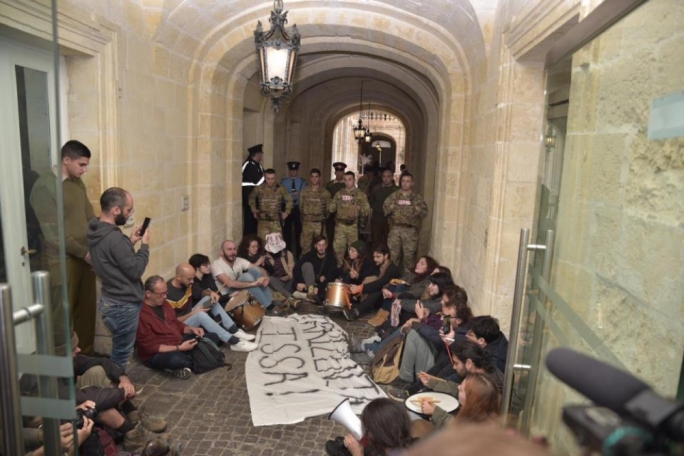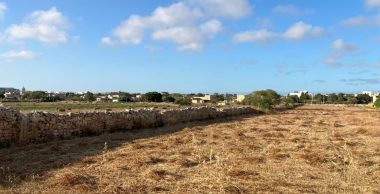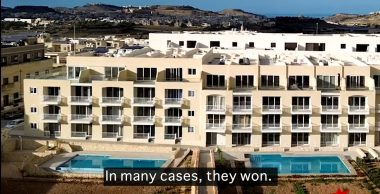As 2020 nears its end and our Republic enters its 47th year, it’s time to take a moment to look back on a difficult year most are happy to wave goodbye to.
Just over a year ago I was on the floor of Castille demanding the immediate resignation of a Prime Minister who determinedly covered up for his closest men, despite mounting evidence of serious wrongdoings. A brief but far too long month later, the curtains were drawn on the Muscat era.
With his legal advisor being handed the reins to the country, there was little hope that there would be a break with the past. The mantra was continuity, not change, and what we got was a continuation of the policies that defined l-Aqwa Żmien, as politics and business continued their happy marriage, notwithstanding the effect the toxic relationship continues to have on the children, and indeed the future, of the Republic.
Muscat’s great innovation of a strong market supported by a generous state remains in play today, with enough public money being doled out to keep everyone placated. Direct orders by the millions continue being handed out, and anybody who’s somebody (as long as they’re connected to the party in government) gets a nice iced bun.
Credit where credit is due: the economic measures introduced as a response to the pandemic are widely seen as being effective, keeping industries afloat and avoiding mass layoffs. The wage supplements, the moratorium on loan repayments, the rent and electricity subsidies were some of the suggestions Moviment Graffitti put forward to Government and which were taken up, and they all played a part in preventing a deeper crisis.
The current administration is savvy enough to listen when it wants to, especially when it comes to low-risk tokens of appeasement to those with a safe and healthy environment at heart.
This year saw the long-awaited entry into force of the new fuel stations policy that limits new fuel stations on ODZ to 1,000sqm, the removal of Simon Saliba from the Planing Commission after his rather inappropriate behaviour, and strong efforts to increase tree cover in places like Bengħajsa and Majjistral Park.
It is unfortunate that these positive steps are overshadowed by the much larger concessions given to those who view the environment as a source of profit or private enjoyment. The backroom deal the government cut with FKNK to hand over formal authority over Miżieb and Aħrax, which have a size some five times larger than Buskett, betrays the mindset of an administration interested more in preserving its power than pushing the country forward.
Politicians are rarely more transparent in their servility to power than when it comes to land. Just look at Ħal Ferħ, (Għajn Tuffieħa). Public land granted to develop Malta’s tourism product is now being proposed, by government, to allow the development of 25 luxury villas. Questions posed to MPs during the parliamentary committee hearing on the matter were left unanswered.
What we are left with is a Republic in service to a mirage of economic success. Can a Republic where, if the state didn’t step in with direct assistance, 37% of citizens live at risk of poverty, defined here as living in a household with an annual income of under €9,212, be called successful?
And yet, despite the millions spent on glitzy campaigns celebrating Malta’s economic success, that is where we are. Thanks to the strong welfare state, that figure is brought down to 17%, which is no less disconcerting. It means that one in every five people depends on the state to lift them out of poverty.
Meanwhile, after exempting itself from the regular rules and procedures by which ordinary citizens are bound, the state now makes a habit of trampling those citizens’ rights. People in Dingli have, quite literally, woken up to an excavator outside their door; we asked the authorities for explanations as to why such a project had to go on without permits and warnings, but we got very little in terms of answers.
Similarly, few answers and even less action were forthcoming when Miriam Pace’s home collapsed on her. The whole nation wept, but the cries heard in Castille were the cries of those concerned about a potential slowdown to business.
So, more appeasement followed, as the proposed registry of contractors was left in the hands of the Malta Developers Association. The registry’s onerous conditions for “approved contractors” start and end with the payment of a €40 fee. Meanwhile, the much-needed construction reform which we have worked on for over a year remains a mirage.
While this is far from an exhaustive look at the state of the Maltese Republic in 2020, I hope it does leave you wondering – what is one to do?
If businesses are mainly interested in enriching themselves and their owners, and the government is mainly concerned with maintaining its power, who is to stand for what is right and proper, for the thousands of disillusioned citizens whose voices have little chance of being heard in the halls of power?
This Christmas, think also of Malta, and ask yourself what you can do to contribute to a better life. For yourself, for your family, for your neighbours, for your community. The answer might lie in giving the most precious gift – our time – to one of the many organisations working tirelessly to improve our Republic: genuine movements working for a better quality of life for all, not only for those connected to power, whether financial or political.




